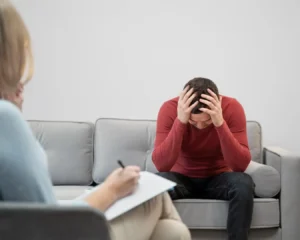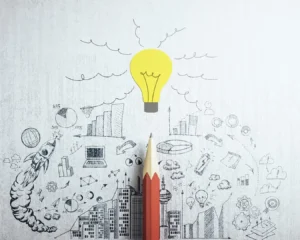Digital Detox: Balancing Technology and Mental Well-being
We often take enough measures for our physical well-being. We are conscious of what we eat and drink. We exercise daily to maintain our physical fitness.
But how much effort do you show towards taking care of your mental health? There is something you need to know that will help you with your mental well-being.
Have you heard of the term ‘digital detox’?
It comprises two words: ‘digital’, which means electronic technology, and ‘detox,’ which means to abstain from the usage of electronic devices.
A digital detox refers to a period during which a person refrains from using electronic devices connected to the Internet, such as smartphones and computers.
Why do we need to practice digital detox?
After we get to know what it means, it is necessary to answer the question, “Why is there a need for us to go on a digital detox?”
Using mobile devices and laptops over a prolonged period has its share of side effects. Side effects of using mobile phones include-
- Risk of Mental Disorders

Many studies show that using a mobile device for a long affects the nervous system, which may lead to headaches, decreased attention, shortness of temper, sleep deprivation, and so on. More studies are being conducted on the subject. - Anxiety and depression

An important part of the internet today is social media, and studies have shown that using social media at a younger age causes issues like – worsening sleep patterns and higher levels of anxiety and depression.
Hence, it is necessary to take time off these electronic devices from time to time to maintain our sanity and to decrease the stress caused by social media consumption.
A few alarming facts about digital detox, studies have shown:
- During the lockdown, Australia’s broadband saw a hike of 70-80% in screen time usage.
- An average user logs 2.15 hours a day on social media and checks their phones every 12 minutes.
- Growing dependence shows that 34% of people have checked Facebook in the last 10 minutes.
These numbers are disturbing, and it’s high time we take steps to help us lead a healthier lifestyle.
How can digital detox help in improving our mental well-being
By refraining from using digital devices, at least temporarily, people can let go of the stress that stems from constant connectivity.
Positive Impact of Digital Detox:

- More free time
- Better sleep quality
- Increased concertation
- Decreased Anxiety
- Improvement in awareness and so on.
Often, social media robs people of happiness, as there is constant comparison with others. Rather than focusing on oneself, it deviates from being jealous of other people’s achievements and accomplishments.
This, indeed, is a very unhealthy practice for one’s happiness. Hence, a digital detox can help them be grounded and grateful.
People are losing the touch of living in the real world, as they are constantly texting, emailing, or calling. Looking around and appreciating nature is very important for one’s mental well-being.
There are various other factors affecting Mental well-being. Read the full article here: Include These Five Habits In Your Daily Lives To Take Care of Your Mental Health
The Digital Detox Process: How to Unplug
First of all, try with a small interval of time in the beginning. Starting with small intervals, like a break of 10 minutes every 2 hours, is a great way to begin this journey.
Remember, do not try to force yourself, try to go with the flow instead.
Delete, unfollow, and unsubscribe to anything or anyone who doesn’t add positive meaning to your life.

Another important point is that you should not use electronic devices when you wake in the morning.
Focus on self-care routines like meditation and exercise. Use your phone after 1 hour of waking up.
It is advisable to keep your phones away from the bedroom while you sleep at night. This will help you sleep well and wake you up feeling refreshed.
Choose a real-life experience rather than a virtual one. For example,
- Instead of reading books online, try to read books from the library. Reading books online creates a lot of stress on the eyes, and it is not advisable.
- Meet people face to face more often than through FaceTime or video calling. Physical presence is much more beneficial than virtual presence.
- Set your boundaries, especially during holidays, and try to stay away from the devices unless it’s urgent.
- Try spending more quality time with family and friends instead.
With the time you save, dedicate it towards your mental well-being like – meditating, reading good books, going out in nature, and so on.
Do you know dance can also improve your mental health? We have written an article about this, read here Finding Joy in Movement: How Dancing Can Improve Your Mental Health
Benefits of Digital Detox
A digital detox can have many benefits, including:
- Improved sleep quality

Disconnecting from screens before bed can improve sleep quality by reducing exposure to artificial light and digital stimuli. - Reduced stress and anxiety

A digital detox can help you avoid the constant strain on brain function that comes with technology use. - Increased productivity and creativity

A digital detox can give you a break from technology and allow you to focus on the real world. - Improved interpersonal relationships

A digital detox can help you connect more with people in real life. - Increased self-awareness and mindfulness

A digital detox can also help you reconnect with yourself and nature.
Overcoming Challenges
Here are some common challenges faced during the digital detox process and strategies to overcome them:
- Fear of missing out (FOMO) and social pressure
It can be difficult to disconnect from social media platforms and fear being left out of the loop.
To address this challenge, remind yourself of the value of real-life interactions and the benefits of being present in the moment. - Anxiety and irritability
Some people may experience anxiety and irritability when they are not using their devices.
This is normal and usually goes away after a few days. To help manage anxiety, try relaxation techniques such as deep breathing or meditation. - Loneliness and isolation
A digital detox can sometimes lead to feelings of loneliness and isolation. To avoid this, make an effort to connect with others in person during your detox.
You can also try online activities that don’t involve social media, such as playing online games or reading online forums.
Let’s Recall
In conclusion, the significance of a digital detox for mental well-being cannot be overstated. As we navigate the fast-paced digital landscape, taking intentional breaks becomes essential for reclaiming peace of mind.
By disconnecting, individuals can alleviate stress, improve focus, and foster a healthier relationship with technology.
We encourage each reader to embark on their personalized digital detox journey – a mindful exploration of life beyond screens.
Embrace the freedom that comes with unplugging, prioritize mental health, and discover a more balanced and fulfilling existence in the digital age. Your well-being deserves this intentional pause.
Ready to make a positive impact in the world?
UPDEED is the place for you. Our free and open platform is filled with inspiring stories from individuals and organizations who are making a difference in their communities and beyond. Connect and collaborate with like-minded individuals from around the globe on UPDEED, and discover your own potential to create meaningful change. Join our community and make a difference.





